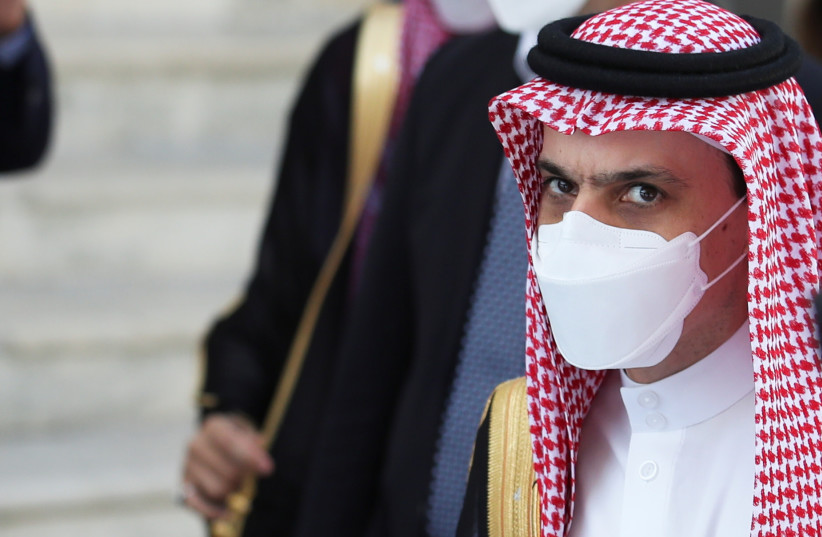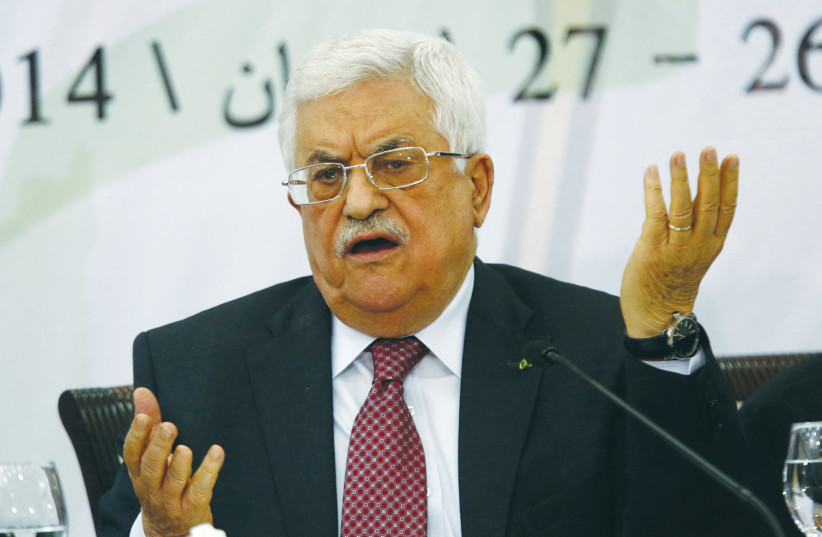Jordan, Egypt, Germany, France called for an end to Palestinian eviction.

An Israeli-Palestinian peace process would pave the way for that country to have additional normalized ties with the Arab world, Saudi Arabia’s foreign minister Prince Faisal bin Farhan Al Saud told the Munich Security Conference on Saturday night.
“The priority now needs to be on finding a path for the Israelis and Palestinians to sit together to have a workable peace process,” Prince Faisal said.
“If that is the case, that will certainly ease [the path] for all of those states that have not yet had relations with Israel to engage, but before that happens, the focus needs to be on the Palestinian issue and finding a just resolution for that issue,” he said.
Prince Faisal spoke positively of an eventual normalization of ties with Israel.
“An Israel fully integrated into the region, will deliver huge benefits not just for Israel but to the region,” Prince Faisal said. He cautioned however, that “without addressing the core issue of the Palestinian people… we will continue to have instability, we will continue to have risks to Israel’s security and the region as a whole.”
He added that the absence of a Palestinian state “will continue to empower the most extreme voices in the region.”

Jordanian Foreign Minister Ayman Safadi underscored the importance of talks for a two-state solution on the pre-1967 lines.
The Israeli-Palestinian conflict “cannot be ignored,” Safadi said. The alternative, he warned, is “a one-state reality” and “a one-state solution will be apartheid,” he said. Safadi said his government was in “direct communication with Israelis to find a political horizon.”
He warned that without “political horizons that conflict would erupt” into violence.
Earlier in the day, he met with his German, French and Egyptian counterparts to discuss the stalled peace talks. The four countries in 2020 formed what they call the Munich Group, to seek ways to advance a two-state solution. This was their fifth meeting.
In a statement, they released after the meeting they reaffirmed the need for a two-state solution and called on Israel to unilateral steps in the West Bank and east Jerusalem.
“We see with concern increasing tensions on the ground,” the group stated. “Against this backdrop, we recall the urgency of the resumption of serious, meaningful and effective talks and negotiations directly between the parties or under a UN umbrella, including under the Middle East Quartet.”
The group called on Israel to cease steps that would harm the possibility of a two-state resolution to the conflict.
“We stress the need to refrain from all unilateral measures that undermine the Two-State Solution and the prospects of a just and lasting peace,” the ministers said.
This included they added, “the building and expansion of settlements, the confiscation of land and the eviction of Palestinians from their homes, including in East Jerusalem, as well as from any acts of violence and incitement.”
They stressed in particular that the rights of Palestinians to their homes in the east Jerusalem Sheikh Jarrah and Silwan neighborhoods “must be respected.”
“We recall the importance of upholding the historic and legal status quo of the Holy sites in Jerusalem. In this regard, we recall the importance of the historic Hashemite custodianship of Jerusalem’s Holy sites,” the ministers added.
In Ramallah Palestinian Authority President Mahmoud Abbas spoke of his concern about unilateral Palestinian activity when he met on Thursday with US House of Representative Speaker Nancy Pelosi, who is also at the Munich conference.
The Abbas meeting with Pelosi took place as tensions have flared in the east Jerusalem neighborhood of Sheikh Jarrah, where at least 28 Palestinian families face eviction.
Abbas spoke with Pelosi about “finally putting an end to Israel’s expulsion of Palestinians in occupied Jerusalem,” according to the Palestine News Agency Wafa.
He similarly called for Israel to respect the status quo on Jerusalem’s Temple Mount and for it to put an end to settlement activity and settler violence.
The PA president also called for an Israeli withdrawal to the pre-1967 lines.
He “stressed the need to stop unilateral Israeli practices that undermine the two-state solution in order to start a real political process in accordance with international legitimacy resolutions,” Wafa reported.
Pelosi visited Israel and the Palestinian territories as the head of the Pelosi Congressional Democratic delegation that included House Intelligence Committee chairman Rep. Adam Schiff and fellow California representatives Barbara Lee, Eric Swalwell and Ro Khanna, as well as Reps. Bill Keating from Massachusetts and Andy Kim from New Jersey.
In Ramallah, they met with Abbas and PA officials such as Prime Minister Mohammad Shtayyeh, Health Minister Dr. Mai Al-Kaila, civic society leaders and students.
“Today, our Congressional delegation held bilateral meetings with senior Palestinian officials to strengthen our important relationship with the Palestinian people,” Pelosi said.
“The Congressional delegation emphasized our unyielding commitment to advancing the safety and security for all living in the region,” she said. “We also reaffirmed our commitment to pursuing an enduring two-state solution that supports security and economic growth in the region.”
She added that “the conversation with President Abbas included a wide-ranging array of questions and exchange of ideas about the present and prospects for peace and opportunity in the region.”
The delegation spent time in east Jerusalem before visiting Ramallah.
Abbas broke off ties with the US when former president Donald Trump was in office but reestablished relations when President Joe Biden entered the White House last year. Pelosi’s meeting was one of a number of high-level US visits to Ramallah that has occurred since then.
Content retrieved from: https://www.jpost.com/middle-east/article-696938.